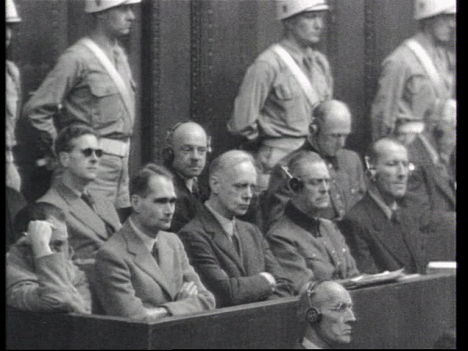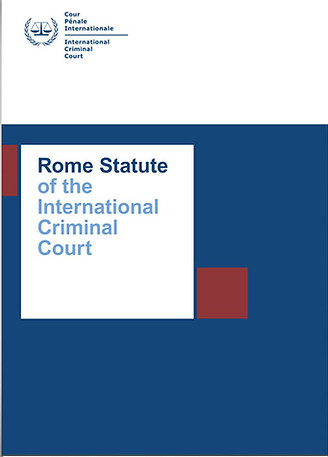Dirty State Crime
is Torturing
British Civilians

In criminology, state crime is activity or failures to act that break the State's own criminal law or public international law.
For these purposes, Ross (2000b) defines a "state" as the elected and appointed officials, the bureaucracy, and the institutions, bodies and organizations comprising the apparatus of the government.
As international crimes, a state may engage in state terror and terrorism, torture, war crimes, and genocide. Both internationally and nationally, there may be corruption, state-corporate crime, and organized crime.
Criminal Justice Act 1988
Section 134
UK Public General Acts, 1988 c. 33,
Part XI - Torture
(1) A public official or person acting in an official capacity, whatever his
nationality, commits the offence of torture if in the United Kingdom or
elsewhere he intentionally inflicts severe pain or suffering on another in
the performance or purported performance of his official duties.
(2) A person not falling within subsection (1) above commits the offence of torture, whatever his nationality, if—
(a) in the United Kingdom or elsewhere he intentionally inflicts severe pain or suffering on another at the instigation or with the consent or acquiescence—
(i) of a public official; or
(ii) of a person acting in an official capacity; and
(b) the official or other person is performing or purporting to perform his official duties when he instigates the commission of the offence or consents to or acquiesces in it.
(3) It is immaterial whether the pain or suffering is physical or mental and whether it is caused by an act or an omission.
(4) It shall be a defence for a person charged with an offence under this section in respect of any conduct of his to prove that he had lawful authority, justification or excuse for that conduct.
(5) For the purposes of this section “lawful authority, justification or
excuse” means—
(a) in relation to pain or suffering inflicted in the United Kingdom,
lawful authority, justification or excuse under the law of the part of
the United Kingdom where it was inflicted;
(b) in relation to pain or suffering inflicted outside the United Kingdom
(i) if it was inflicted by a United Kingdom official acting under the
law of the United Kingdom or by a person acting in an official
capacity under that law, lawful authority, justification or excuse
under that law;
(ii) if it was inflicted by a United Kingdom official acting under
the law of any part of the United Kingdom or by a person acting in an official capacity under such law, lawful authority, justification or excuse under the law of the part of the United Kingdom under whose law he was acting; and
(iii) in any other case, lawful authority, justification or excuse under the law of the place where it was inflicted.
(6) A person who commits the offence of torture shall be liable on conviction on indictment to imprisonment for life.


We victims have been violated and suffered pain. Those guilty must not go unpunished

The Nuremberg Nazi Trials
Saw Saw 22 senior Nazi's on Trial including 4 bankers.
The Nuremberg trials were held by the Allies against representatives of the defeated Nazi Germany, for plotting and carrying out invasions of other countries, crimes against humanity, and other crimes, in World War II.

Section 135 Requirement of Attorney General’s consent for prosecutions
Proceedings for an offence under section 134 above shall not be begun—
(a) in England and Wales, except by, or with the consent of, the Attorney General; or
(b) in Northern Ireland, except by, or with the consent of, the [Advocate General for Northern Ireland].
International Criminal Court Act 2001
The International Criminal Court Act 2001 is an Act of the Parliament of the United Kingdom. The Act incorporates into English law and Northern Ireland law the Rome Statute of the International Criminal Court.
It creates a legal framework so that persons convicted by the ICC can serve prison sentences in the United Kingdom. The Act also provides for offences under the law of Scotland corresponding to offences within the jurisdiction of the International Criminal Court
The Rome Statute
The Rome Statute outlines the ICC's structure and areas of jurisdiction. The ICC can prosecute individuals (but not states or organizations) for four kinds of crimes: genocide, crimes against humanity, war crimes, and the crime of aggression.
These crimes are detailed in Articles 6, 7, 8, and 8 bis of the Rome Statute, respectively. They must have been committed after 1 July 2002, when the Rome Statute came into effect.

Rome Statute
Articles
Article 7(1)(f)
A public official or person acting in an official capacity, whatever his nationality, commits the offence of torture if in the United Kingdom or elsewhere he intentionally inflicts severe pain or suffering on another in the performance or purported performance of his official duties.
Article 25
Individual criminal responsibility 1. Court shall have jurisdiction over natural persons pursuant to this Statute. 2. person who commits a crime within the jurisdiction of the ICC, Hague
Article 27
Irrelevance of official capacity. Immunities or special procedural rules which may attach to the official capacity of a person, whether under national or International ICC law
Article 30
Mental element. Unless otherwise provided, a person shall be criminally responsible and liable for punishment for a crime within the jurisdiction of the Court only if the material elements are committed with intent and knowledge.
.jpg)
